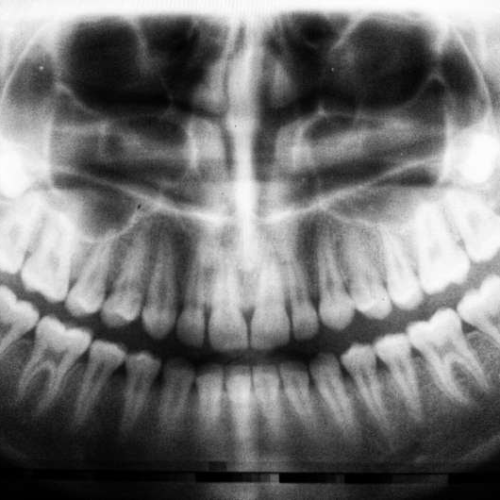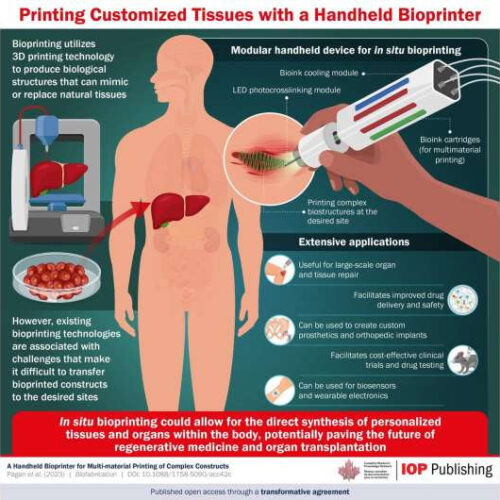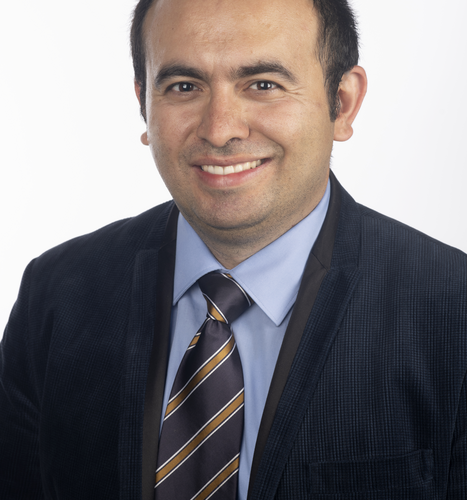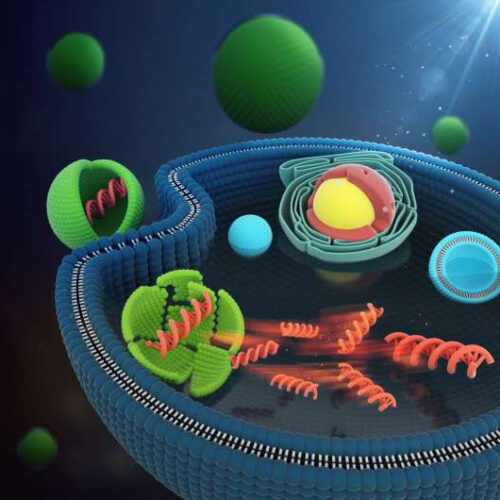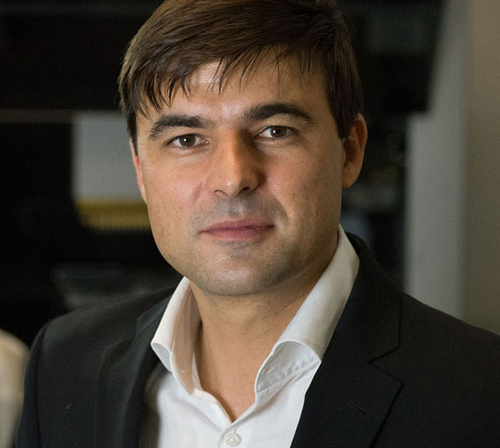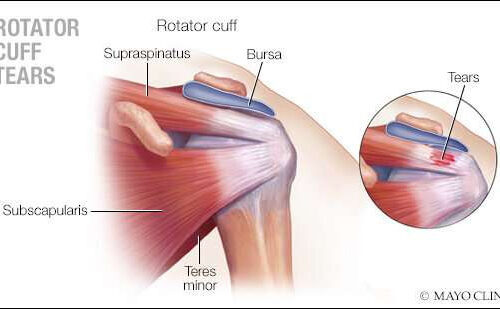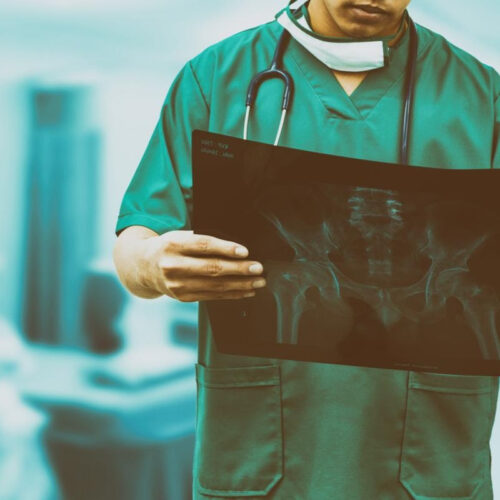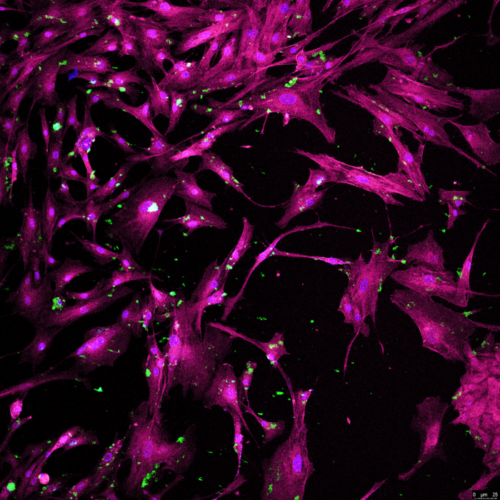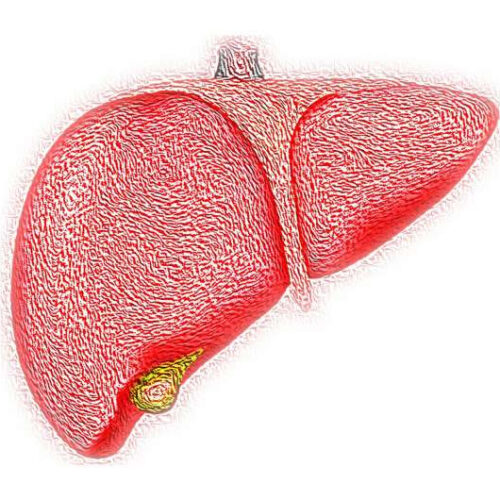Peer-Reviewed Publication University of Nottingham image: Researchers holding 3D printed PA-blood constructs.view more Credit: University of Nottingham Scientists have created a new ‘biocooperative’ material based on blood, which has shown to successfully repair bones, paving the way for personalised regenerative blood products that could be used as effective therapies to treat injury and disease. Researchers from...
Tag: <span>Regenerative Medicine</span>
Study mapping entire genome of oral stem cells opens new doors for regenerative medicine
by Forsyth Institute Credit: Unsplash/CC0 Public DomainA team of researchers from the ADA Forsyth Institute and University of North Carolina (UNC), Chapel Hill used single-cell transcriptomic analysis to successfully map dental pulp stem cells (DPSC) and periodontal ligament stem cells (PDLSC) and found remarkable differences between them. The study, which appears in the Journal of Dental...
Bioprinting personalized tissues and organs within the body: A breakthrough in regenerative medicine
by Cait Cullen, IOP Publishing In situ bioprinting could allow for the direct synthesis of personalized tissues and organs within the body, potentially paving the future of regenerative medicine and organ transplantation. Credit: Pagan et al. In situ bioprinting, which involves 3D printing biocompatible structures and tissues directly within the body, has seen steady progress over...
A look inside stem cells helps create personalized regenerative medicine
GEORGIA INSTITUTE OF TECHNOLOGY IMAGE: AHMET F. COSKUN, A BERNIE MARCUS EARLY CAREER PROFESSOR IN THE COULTER DEPARTMENT OF BIOMEDICAL ENGINEERING AT THE GEORGIA INSTITUTE OF TECHNOLOGY AND EMORY UNIVERSITY CREDIT: GEORGIA TECH Organelles – the bits and pieces of RNA and protein within a cell – play important roles in human health and disease,...
Researchers overcome stem cell delivery barrier, paving the way for regenerative medicine
by Catherine Diamond, Xi’an jiaotong-Liverpool University DNA being delivered into the nucleus of a stem cell – An artistic rendition of the study led by Dr Gang Ruan and selected as a supplementary cover art by the journal Nano Letters. Credit: American Chemical Society A recent study published in Nano Letters has introduced a new method for delivering particles...
Heart attack study could change the game in regenerative medicine
SANFORD BURNHAM PREBYS IMAGE: ALEXANDRE COLAS, PH.D. CREDIT: SANFORD BURNHAM PREBYS LA JOLLA, CALIF. Mar 29, 2023 – Sanford Burnham Prebys researchers have identified a group of proteins that could be the secret to cellular reprogramming, an emerging approach in regenerative medicine in which scientists transform cells to repair damaged or injured body tissues. The researchers...
Real-world evidence study of regenerative medicine and shoulder surgery
by Susan Buckles, Mayo Clinic Credit: Mayo Clinic Applying regenerative medicine to a common shoulder surgery could have an impact on the need for follow-up revision surgery in some patients, according to a Mayo Clinic study of real-world evidence. Mayo Clinic researchers analyzed the largest set of data available to determine if adding bone marrow...
Orthobiologics: how regenerative medicine can make a difference in orthopedic surgery
Reviewed by Danielle Ellis, B.Sc. By Keynote ContributorDr. Pamela Mehta, M.D.Orthopedic Surgeon and Founder of ResilienceOrthopedics Challenges in conventional orthopedic treatments You never know when you might need to see an orthopedic surgeon. From cradle to casket, accidents and injuries are an inevitable part of life, with your joints worse off for it. Even if you can...
Engineering researchers develop porous nanoparticles for regenerative medicine
TEXAS A&M UNIVERSITY IMAGE: DR. AKHILESH K. GAHARWAR IS LEADING RESEARCH TO DEVELOP A NEW CLASS OF POROUS NANOPARTICLES THAT CAN DIRECT STEM CELL DIFFERENTIATION. IN THE PHOTO, THE PURPLE SECTIONS ARE ACTIN CYTOSKELETON OF HUMAN MESENCHYMAL STEM CELLS, THE BLUE SPOT IN THE UPPER LEFT AREA IS THE NUCLEUS OF CELLS AND THE GREEN...
Researchers unlock secrets behind liver regrowth and regenerative medicine
by New York University Credit: CC0 Public Domain NYU Abu Dhabi (NYUAD) researchers have uncovered a code that sets the genome of the liver to account for the remarkable ability of this organ to regenerate. This finding offers new insight into how the specific genes that promote regeneration can be activated when part of the liver...

